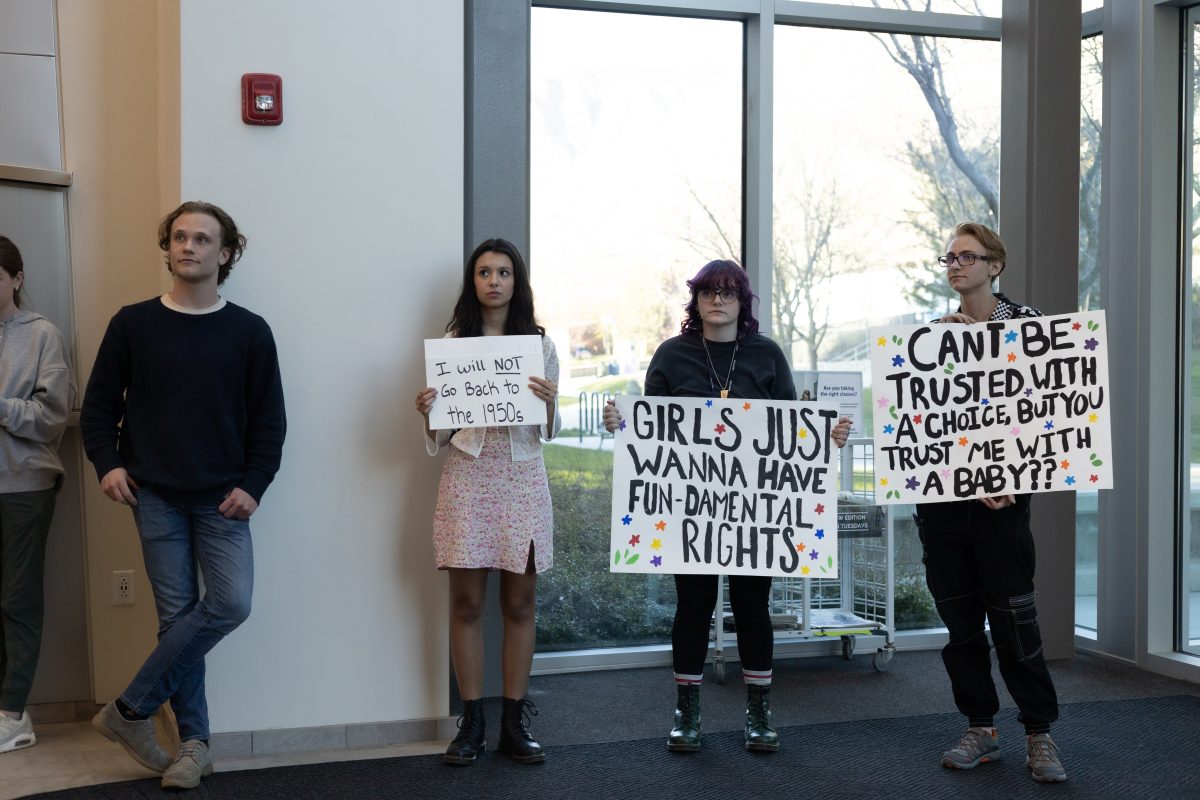The latest discussion in the Weber Reads! series at Weber State University encouraged others to look at their own identity and heritage and to be mindful of the rights they enjoy in the United States. It was a lecture by Adrienne Gillespie regarding the history of slavery as it relates to the U.S. Constitution.
WSU sophomore Avery Pince has been attending Weber Reads! for several weeks and talked about what she gets out of this particular series and why she was interested in it. She talked about how she wanted to learn more about past figures who suffered from discrimination.
“I’m really interested in the race and gender parts of history,” Pince said.
The discussion mainly covered the history of slavery and how it related to the Constitution from the first drafts introduced by the Founding Fathers to the addition of the 14th Amendment after the end of the Civil War. Fearing that the abolition of slavery would deter southern states from ratifying the Constitution the Founders never formally abolished it, although some of them entertained the idea and even advocated it.
Gillespie talked about the dehumanization of African-Americans as a way to justify legal discrimination against them in the Constitution and other legal documents. This attitude culminated in the Dredd Scott decision of 1857. The Scott case was brought before the Supreme Court when a slave named Dredd Scott tried to sue for his freedom after being passed, like property, to the relatives of his original slave owner in another state, after that original owner had died.
The Supreme Court ruled that Scott was not to be considered a citizen of the United States and, therefore, had no right to sue. The court also ruled that even though Scott had been born and lived in a free territory he was still to be considered a slave under federal law. Only after the end of the Civil War with the passage of the 14th Amendment were African-Americans finally granted citizenship and the right to vote.
Associate professor of history Kathryn MacKay, near the end of the discussion, explained to the audience how the lecture was an important continuance of the rest of the series.
“It’s a connection to previous Weber Reads! with the long discussion that has gone on now up into the thrid year about the issue of slavery and American identities,” MacKay said.
She went on to talk about why Gillespie’s perspective was important to the discussion.
“I think your telling your own stories is a powerful continuence of that tradition,” she said.
Gillespie then commented on how, after she had been asked to participate in the discussion, her own research had an effect on how she saw herself and benefited her.
“Becoming a part of it has really made me have to look at my own identity,” Gillespie said.
She furthermore said that she hoped that the discussion would encourage others to learn more about the history of civil liberties and to take a look at their own family histories and identities as Americans.




















